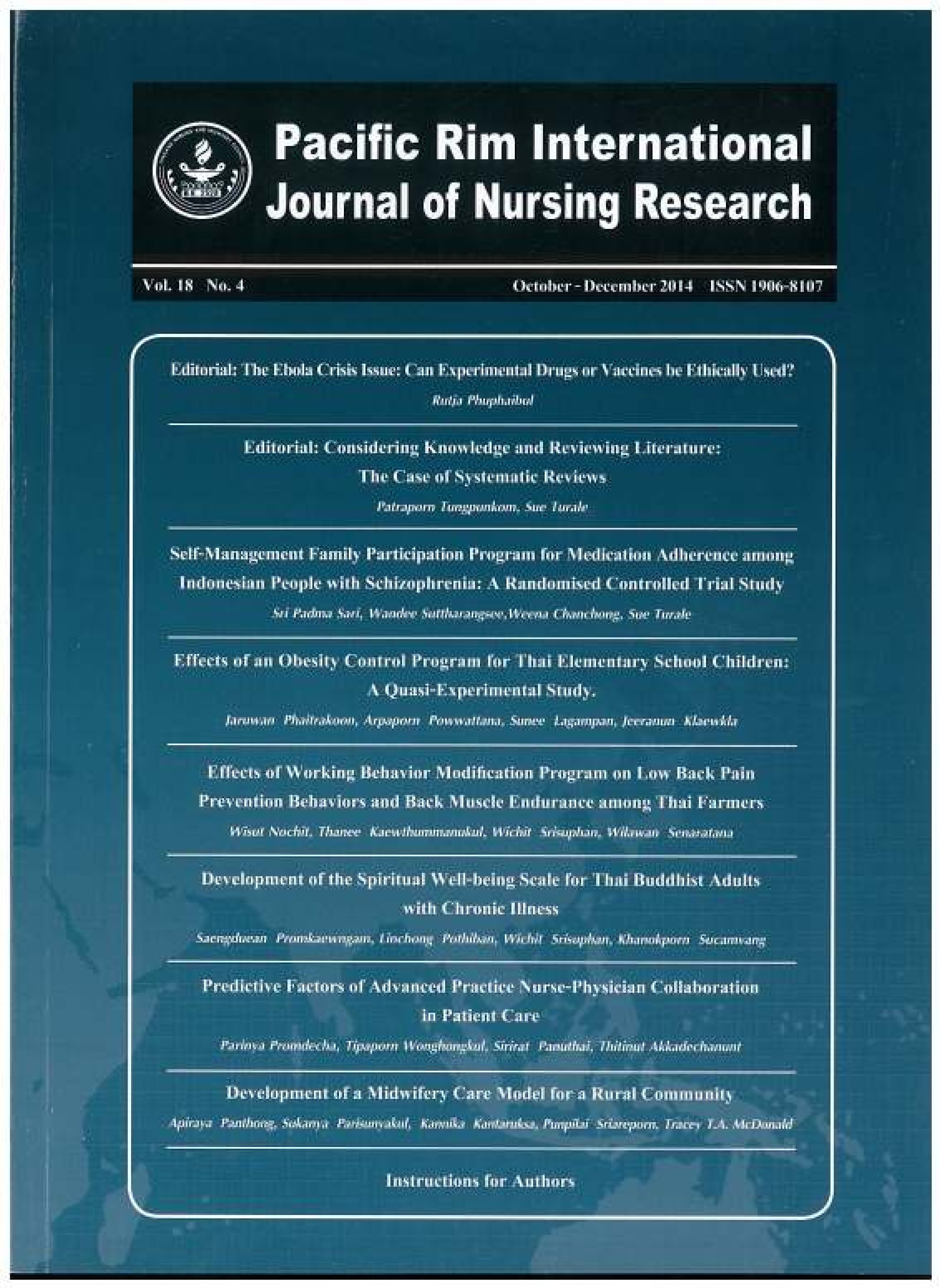Effects of an Obesity Control Program for Thai Elementary School Children: A Quasi-Experimental Study
Keywords:
Health promoting schools, Obesity, Obesity control program, Overweight, School children.Abstract
This quasi-experimental study tested the effectiveness of an Obesity Control Program (OCP) in elementary school student. The development of this program’s activities was guided by previous OCPs of health promoting schools and literature reviews. Participants were grade 1-3 overweight students and their parents, teachers, and cooks in two private schools in Nakhornnayok Province, Thailand. The 40 students assigned to the experimental group received 8 obesity control activities in 16 weeks. These were: healthy food prepared by cooks; integration of nutrition content into all subjects by teachers; nutrition education; planting vegetables; healthy day/healthy corner; newsletter; morning exercise; and nutrition, physical activity, perceptions and physical fitness assessment, performed by the researchers. The 44 students assigned to the control group did not receive any of these tailored activities. The program was evaluated three times, before, during, and after the intervention. Structured questionnaires assessed the children’s perception of obesity, food consumption and exercise behaviors; and skin fold measurement was used to assess body fat percentage. Repeated measure ANOVA was used analyze the data.
By program end, the nutritional status of experimental students had improved. The calorie intake per day and body fat percentage in the experimental group was significantly less than the control group. A key success factor of the healthy program was the participation of all parties such as school director, teachers, cooks, parents, and students. This program requires further testing in several schools to help reduce obese children in Thailand. Public health nurses can make important contributions to assist in reducing the alarming crises in overweight and obese children, through developing and implementing such programs, to beducate them to lead healthier lives.
Downloads
Published
How to Cite
Issue
Section
License
Copyright: The Pacific Rim International Journal of Nursing Research, Thailand Nursing & Midwifery Council has exclusive rights to publish, reproduce and distribute the manuscript and all contents therein.








.png)



